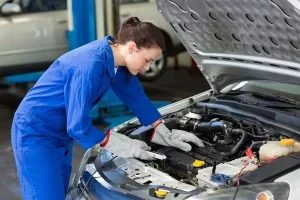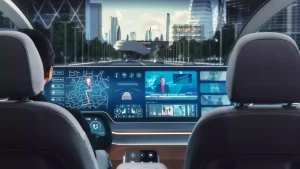The History of Classic Cars

Classic cars captivate us with an irresistibly nostalgic allure, admiration, and sheer enthusiasm. They capture an era’s history while simultaneously demonstrating both engineering brilliance and cultural nuances.
Modern car designers continue to draw inspiration from their elegant lines and unique grilles for designing modern automobiles. Furthermore, their technological advancements continue to lead to safer and more fuel efficient vehicles today.
The Legacy of Classic Cars
Classic cars continue to capture the hearts of enthusiasts for good reason: these vehicles encapsulate style and aspiration that transcend generations and cultures alike, from muscle cars with their roaring engines all the way through to luxurious Jaguar E-Types with their elegant curves.
These automobiles showcase impressive mechanical engineering, from simple carburetors to complex fuel injection systems. Furthermore, these automobiles provide owners with an exciting driving experience, allowing them to form more intimate bonds between themselves and their vehicle.
Classic car enthusiasts generally consider any model at least 25 years old to qualify as classic. This rule ensures classics retain their historical significance while providing collectors the ability to restore them, however this poses several unique challenges when it comes to preservation; striking a balance between historical accuracy and modern upgrades to increase safety and drivability is crucial if these driving icons are to remain an integral part of our culture.
The Iconic Models
Classic cars evoke both nostalgia and admiration, their timeless beauty inspiring modern automotive designers. Furthermore, their technological advancements have contributed to safer and more fuel-efficient modern vehicles.
American classics, such as the Ford Mustang and Chevrolet Bel Air, stand for power and luxury. German cars such as Volkswagen Beetles exhibit simplicity and reliability; exotic models like Ferrari 250 GTOs and Datsun 240Zs provide speed and exhilaration.
Every classic car has a story to tell and its past owners’ history can help reveal its true value through research or consulting experts. Finding restoration projects for vintage rides may also add value and preserve history while making your own vehicle even more precious!
The Future of Classic Cars
Classic cars can be an invaluable source of pride and mementos of an earlier era for their owners, providing a more engaging driving experience than modern vehicles and helping their drivers to forge deeper connections to the road. Many drivers find great joy in maintaining and restoring classic vehicles, with driving them providing highly rewarding thrills!
Classic cars captivate car enthusiasts around the world, from their iconic engines and ingenious mechanical engineering to their stunning aesthetic. Classic vehicles serve as testaments to automotive ingenuity and design and will continue to draw in new followers for generations.
However, what constitutes a classic car can vary widely depending on which criteria are used by various groups. Insurance companies and car clubs may define it as having reached certain ages or as possessing timeless appeal.
The Benefits of Owning a Classic Car
Finding and purchasing a classic car can be an exhilarating journey. Enthusiastic owners regularly showcase their meticulously maintained rides at car shows and meetups, offering rare opportunities to find an iconic vehicle for sale. In addition, networking within classic car clubs and communities may lead to word-of-mouth deals being passed around between owners.
Many drivers opt to buy classic cars because of their historical significance, creating an emotional link with bygone eras. Collectors, on the other hand, appreciate them due to their elegant appearance; classic vehicles exude sophistication and style while providing drivers with an immersive driving experience unlike modern models.
Due to limited availability and extensive history, classic cars tend to command an increased value. A pedigree showing meticulous ownership and maintenance records may add further value. As such, collectors must thoroughly understand what characteristics define classic vehicles before investing; this will ensure they buy an authentic classic vehicle.







